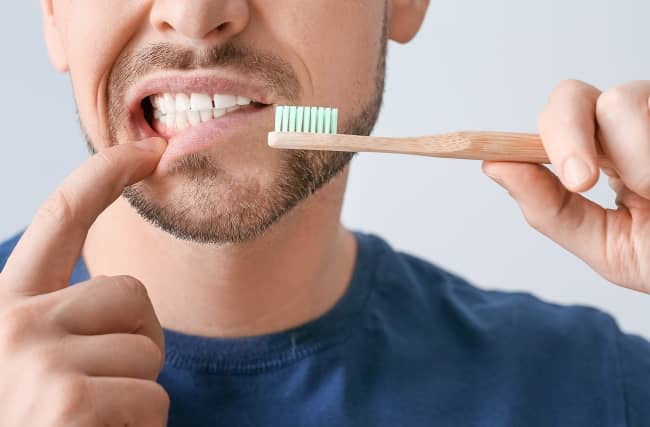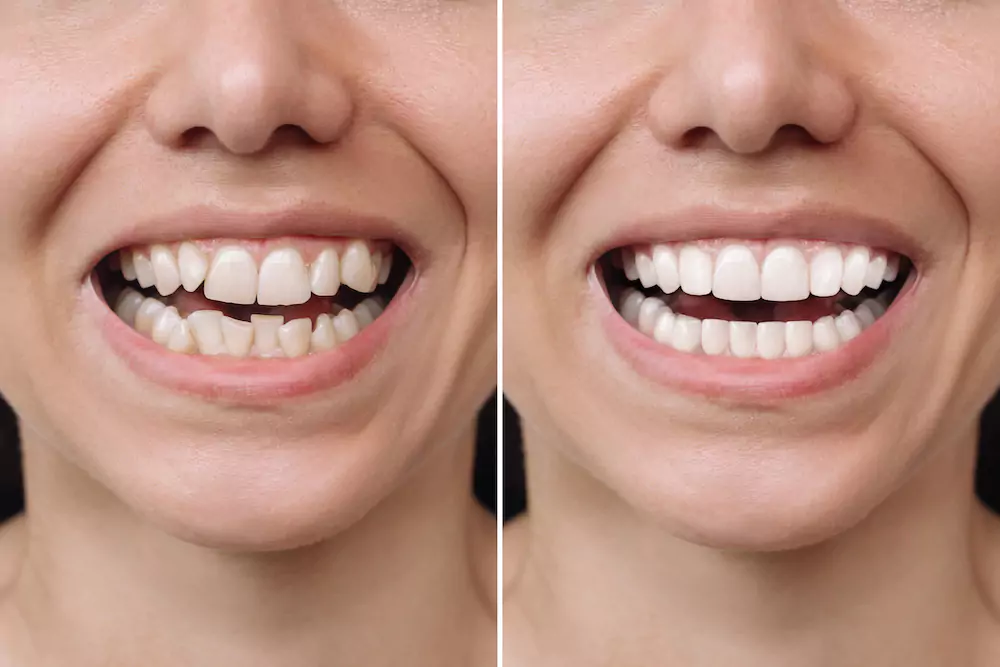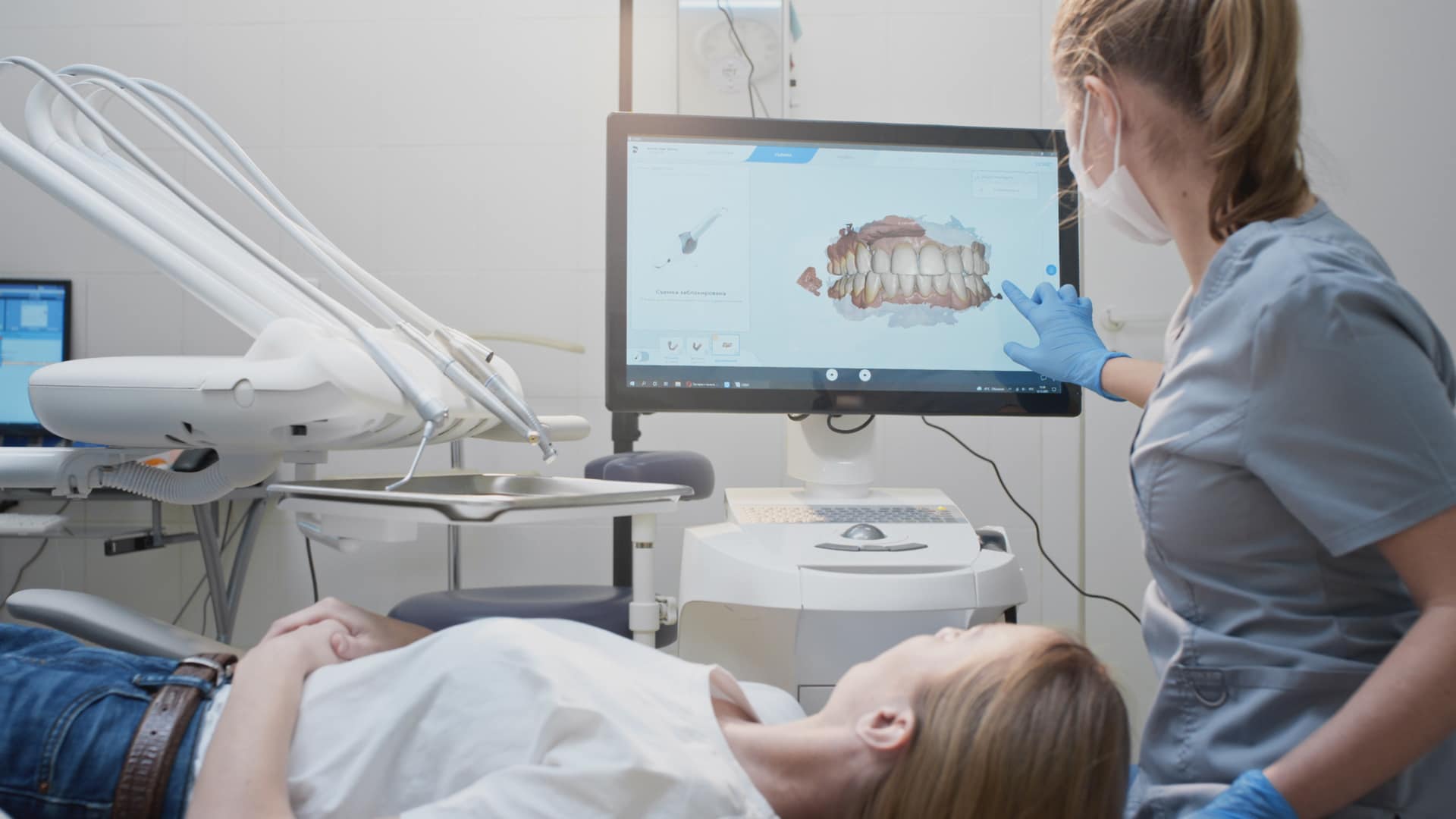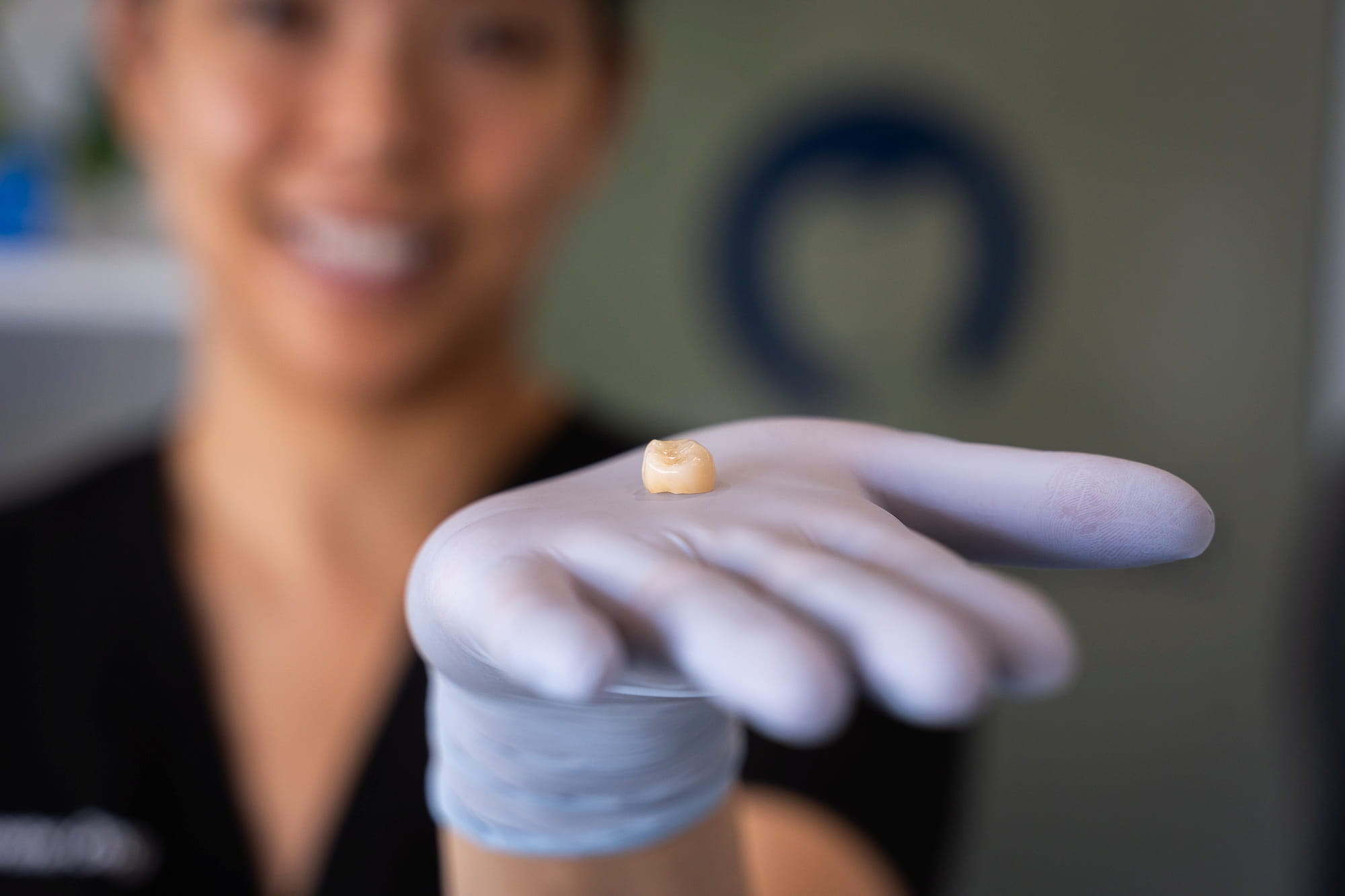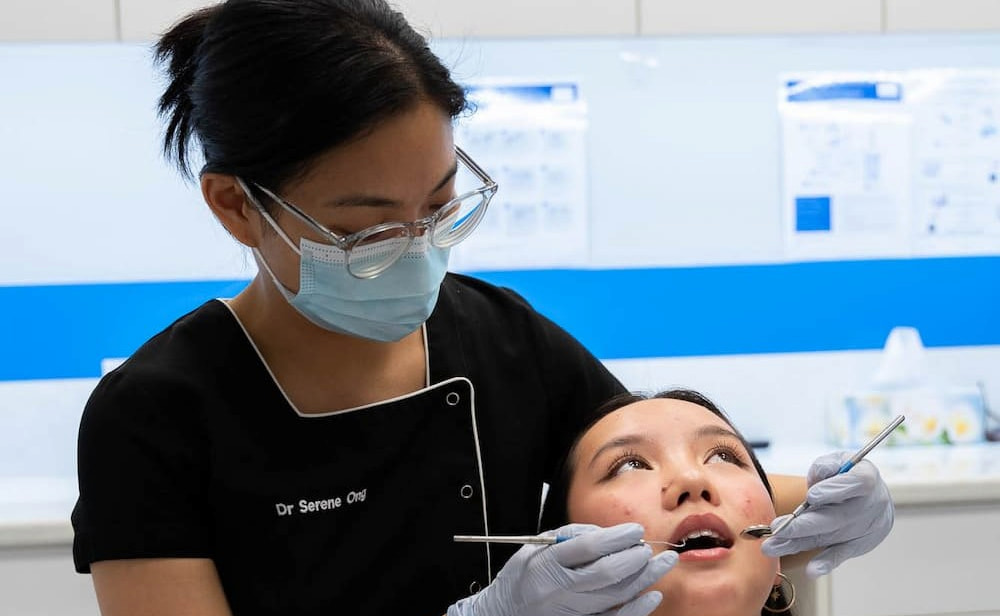
Can I Brush My Teeth After a Wisdom Tooth Extraction? Your Guide to Post-Extraction Oral Care
Can I Brush My Teeth After a Wisdom Tooth Extraction? Your Guide to Post-Extraction Oral Care
“When can I start brushing after tooth extraction?”, is a big concern I’ve heard from my patients throughout my decade as a dentist.
I do not recommend brushing your teeth too soon after wisdom tooth removal as it can cause pain, inflammation, and delayed healing.
However, it is important to keep your mouth clean after the extraction, so I put together this guide on how to clean your mouth after wisdom teeth removal.
These tips will minimise soreness, promote healing, and give you clear guidelines on when you can brush again.
Immediate Post-Extraction Care
First 24 Hours
Many patients notice soreness and mild swelling after wisdom tooth extraction. The tenderness and pain may prevent you from wanting to brush at all.
It is not recommended to brush your teeth on the day of the surgery. Instead, give your teeth, the extraction site, and your gums time to heal.
Brushing your teeth may irritate the extraction site or introduce bacteria to the wound, increasing your chance of infection.
Each case is unique but most people can resume brushing their teeth 24 hours after wisdom tooth removal. It is imperative to brush with extreme care and caution to avoid irritation or complications.
Learn more about the wisdom tooth extraction process here: Wisdom Teeth Removal Perth.
Follow Instructions
Your dentist will give you a detailed after-care guide to brushing and keeping your mouth clean after wisdom tooth removal.
It is crucial to follow your dentist’s after-care instructions closely to ensure proper healing, minimise discomfort, and reduce the chance of complications.
Expect Some Discomfort
It is normal to experience some discomfort after wisdom tooth extraction. It should be minimal, but you will notice some soreness near the extraction site, minor swelling, and pain.
Learn More: How Are Wisdom Teeth Removed and How Long Until They Heal?
Brushing Your Teeth After Extraction
When to Start Brushing
Here is what I tell my patients when they ask, “When can I start brushing after tooth extraction?”.
You can brush your teeth the same day as the extraction however, it is important to be very gentle around the extraction site.
Use a soft-bristled toothbrush, warm water, and gentle, circular motions. Avoid brushing the extraction site.
Another common question I hear is, “When can I brush my teeth with toothpaste after wisdom teeth removal?”.
You can use your normal toothpaste straight away as long as you can tolerate it. If it is causing any irritation to the extraction site, cease use immediately and use a soft-bristled toothbrush with warm water to gently brush your teeth.
How to Brush Safely
Here are more tips on how to clean your mouth after wisdom teeth removal and how to brush safely:
- Take extra caution when brushing for at least two weeks after the surgery
- Be careful and gentle near the extraction site
- Brush gently and slowly
- Avoid hard bristled toothbrushes
- Avoid using mouthwash with alcohol as it can be irritating
Alternatives for Cleaning
Carefully rinsing your mouth with warm salty water can help clear away food debris and support saliva production. Ask your dentist if rinsing with a solution of warm water and salt would be appropriate for you. Your dentist may also recommend an antibacterial mouthwash.
Oral Hygiene Best Practices Post-Extraction
Here are some of the tips my patients find most helpful for how to clean your mouth after wisdom teeth removal.
Soft-Bristled Toothbrush
I recommend a soft-bristled toothbrush as part of your daily oral hygiene routine but it is particularly crucial to avoid hard bristles after wisdom tooth extraction.
A soft-bristled toothbrush can effectively clear away debris without being overly aggressive or irritating. Use soft, gentle, circular motions to carefully but thoroughly brush.
Avoid the Extraction Site
It is important to avoid irritating the extraction site after wisdom tooth removal. Be extra cautious when brushing near it and avoid brushing the actual extraction site until it is fully healed.
This usually takes two to three weeks after the surgery. Always check with your dentist on when you can resume brushing the extraction site.
Gentle Rinsing
Make a point to swish gently when you rinse your mouth. Warm water is a great option for a gentle rinse but you can also ask your dentist about a mix of salt and warm water.
No Spitting or Swishing
Rather than spitting out toothpaste or swishing, stick to gentle rinsing. The motion of swishing or spitting out toothpaste can dislodge stitches or irritate the extraction site.
Personal Experience and Tips
Elevate Your Head While Sleeping
For the first night after wisdom tooth extraction, I recommend elevating your head while sleeping. This can be as simple as sleeping with an extra pillow to help prop your head up. My patients tell me that this trick works well to minimise discomfort and keep down.
Stick to Soft Foods
“When can I start brushing after tooth extraction?” is one of the common questions I hear regarding wisdom tooth extraction. However, there’s an even bigger concern my patients always bring up: What can I eat?
After wisdom tooth extraction, the biggest rule to protect your mouth and ensure proper healing is to avoid chewing. For two hours after the extraction, do not eat at all.
After that, I recommend sticking to clear liquids, such as chicken or vegetable broth, for at least 24 hours.
By day two or three, you should be able to start eating soft foods. I recommend soft, mild foods that do not require much chewing.
Here are some options for soft, no-chew foods after wisdom tooth extraction:
- Kefir or Greek yoghurt
- Applesauce
- Pureed baby food
- Mashed potatoes, bananas, beans, pumpkin, sweet potatoes, or squash
- Ice cream
- Scrambled eggs
- Porridge
- Pureed soups
- Cottage cheese
- Mashed, steamed carrots
- Smoothies
- Hummus
- Mashed avocado
- Soft, blended meats (i.e. salmon or tuna)
- Nut butters
- Cheese
For a detailed look at what to eat after wisdom tooth removal, what to avoid, and a sample meal plan for after surgery, see my guide here: What to Eat After Wisdom Teeth Removal | Dentist-Approved Foods.
Stay Hydrated
Drinking enough water is an important part of the healing process after wisdom tooth extraction. Water also helps dislodge food debris and stimulate saliva production.
Use the Right Amount of Toothpaste
This may seem like a minor detail but I like to remind my patients to stick to a small amount of toothpaste.
Using too much toothpaste can irritate the gums and extraction site. Instead, stick to a pea-sized amount of toothpaste.
I also suggest choosing a mild toothpaste that contains fluoride. Certain ingredients can be too harsh, leading to gum inflammation and slower healing.
When to Contact Your Dentist After Wisdom Tooth Removal
Warning Signs
Watch for these signs of complications after wisdom tooth removal:
- Uncontrolled bleeding
- Fever over 38˚C Severe pain that is not relieved by your prescribed pain medication
- Worsening swelling after 72 hours
- A bad taste in your mouth that does not go away after rinsing with saltwater
- Swelling that makes it difficult to swallow
- Difficulty breathing
- Pain radiating from the jaw to the temples
- Numbness that does not go away after 3-4 hours
- Pus, fluid, or blood slowly seeping out of the socket
- Facial swelling that spreads rapidly
- Worsening symptoms
If you experience these warning signs, contact your dentist immediately.
Dry Socket Awareness
Dry socket is one of the biggest complications I watch for after wisdom tooth extraction. This is a condition where the extraction site fails to heal properly, leaving blood vessels and nerves exposed and vulnerable.
Left unaddressed, dry socket can develop into an infection. If you notice pain radiating through your jaw or up to your temples, it may be a sign of dry socket. Your dentist will discuss warning signs of dry socket and educate you on when to notify your dentist.
Regular Check-Ups
Regular checkups are an important part of good oral health. General dental checkups ensure any issues are caught early. After wisdom tooth removal, regular checkups enable your dentist to continue monitoring your extraction site.
Wondering How to Clean Your Mouth After Wisdom Teeth Removal? Our Caring Team Can Help
Not brushing for the first 24 hours after wisdom tooth removal is crucial for keeping your mouth healthy. After the first day, I recommend using a soft-bristled toothbrush, brushing slowly and carefully, and avoiding the extraction site.
It is important to discuss your after-care plan and follow it closely for wisdom teeth removal. With time and proper care, your wisdom tooth extraction site should heal completely.
If you need to have wisdom teeth removal or need to have your post-extraction checked, come see us at Genesis Dental. Our caring team will walk you through the entire process and make sure you feel informed about what to expect and how to care for your mouth after wisdom tooth extraction.
